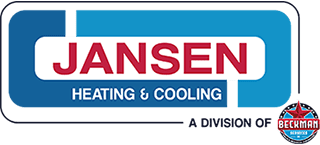When’s the Last Time Your Home Had Its Air Ducts Cleaned?

With winter thankfully in the rear-view mirror, now’s a good time to think about hiring professional HVAC technicians to inspect and, if necessary, clean the air ducts in your home. After months and years of delivering conditioned air to all the rooms of your home, the ductwork may have accumulated a significant amount of dust and debris, along with various undesirable contaminants.
As air moves through the ducts, both on the supply and return sides of the system, it can leave various unwanted materials in the ducts. This can include pet and human hair and dander, allergens, mold spores, insect parts, dust mites, vermin scat, chemical residue, carpet fibers and more. This may pose a threat to the health of home occupants, especially those suffering from respiratory ailments and allergies. Even for healthy people, the idea of breathing this stuff isn’t exactly a pleasant thought.
The issues arising from clogged or dirty ducts isn’t limited to health, however. Excessively dirty ducts can constrain airflow through the ducts, forcing heating or cooling equipment to work harder to perform its essential role – delivering conditioned air throughout your house. This will waste energy, stress parts, result in unbalanced airflow, and even lead to more breakdowns.
The good news is that if your home’s HVAC system includes effective air filtration, you won’t need to consider duct cleaning more than every several years. Anybody who tries to tell you it’s something that’s needed every year or two is probably exaggerating.
Other than in extreme circumstances (e.g., living on a dusty road, having interior carpentry work), most households don’t require duct cleaning more than every five years or more. Following are three good ways to tell whether your home requires duct cleaning.
Does Your Home Need Duct Cleaning?
• If you see dust or dust bunnies swirling around supply registers (the registers that deliver conditioned air), this could signify dirty ducts. On a sunny day, look at the air around the registers, with an open window in the background. You can shine a flashlight into the first few feet of visible ductwork to look for any accumulated dust in the duct’s interior.
• You can see mold growing on or near ductwork. (Address this situation immediately; if it’s a sizable patch of mold, you may want to call in a professional.)
• Signs of rodent or insect infestation inside the ducts.
You probably need a professional duct cleaning – or at least a ductwork inspection – if you notice any of these problems, or if you can’t remember when’s the last time your home’s ducts were cleaned. (It’s not unusual for homes to never have their ductwork cleaned, and the homeowners pay for that neglect in the various aforementioned ways.)
When the technicians come to your home, they’ll use sophisticated diagnostic equipment to determine whether your ductwork needs to be cleaned or repaired, and then offer to do the work. They also should plan to clean connected HVAC equipment, since it likely will be dirty, too.
Make sure you work with a respected local HVAC business, however, since it’s not unusual for unscrupulous companies to exaggerate the issues with a home’s ductwork, and persuade the homeowner to pay for a duct cleaning that’s not necessary.
